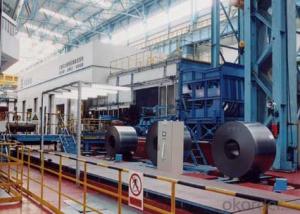Cold Rolled Steel Coil-SPCC 1.50m*1000mm
- Loading Port:
- Shanghai
- Payment Terms:
- TT OR LC
- Min Order Qty:
- 50 m.t.
- Supply Capability:
- 25000 m.t./month
OKorder Service Pledge
OKorder Financial Service
You Might Also Like
SPECIFICATION
1) Capacity: about 10,000 ton per month for steel strip/tape product
2) Thickness: from 0.20mm to 3.5mm, all available.
3) Width: from 15mm to 600mm, all available.
4) Grade: Q195, SGCC, DX51D
5) Coil weight: from 50kg to 7000kg, all available.
6) Coil ID: 100mm - 508mm
7) Coil OD:500mm-1300mm
9) Tensile strength: 28.1-49.2kgf/mm2
10) Zinc coating weight: Min. 60g/m2, double side
11) Spangle: regular spangle, minimized spangle, zero spangle
12) Surface treatment: chemical passivating treatment, oils, passivating oils
13) Min trial order 5ton each thickness, 1 x 20' per delivery
14) Components: C%≤ 0.07, Si%≤0.03, Mn% ≤ 0.50, P% ≤ 0.025, S% ≤ 0.025, Alt% ≥ 0.02
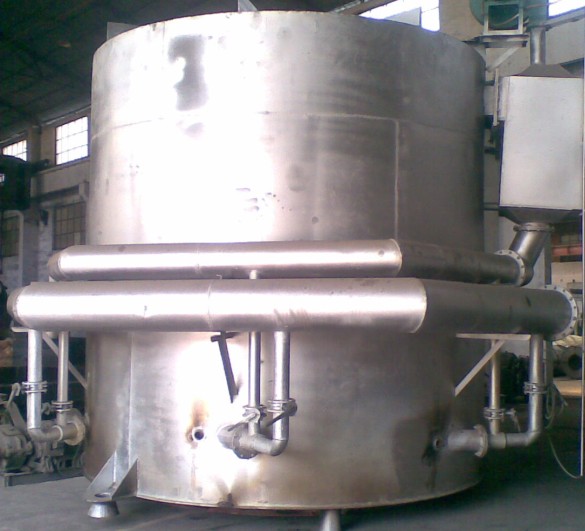
APPLICATION
It is the based material for galvanized steel coil and pre-painted galvanized steel coil. It is widely used in light industry for making tank, furniture, pipe, refrigerators, washers, freezer plate, air conditioner, micro-wave oven, water heater, soot-such machine, electric rice cooker, electric roaster oven, dryers and automobile etc. In the other application industries, it’s mainly used for enameling, office furniture, burglarproof door, electronic element, fastener battery, hardware, automotive fitting etc.
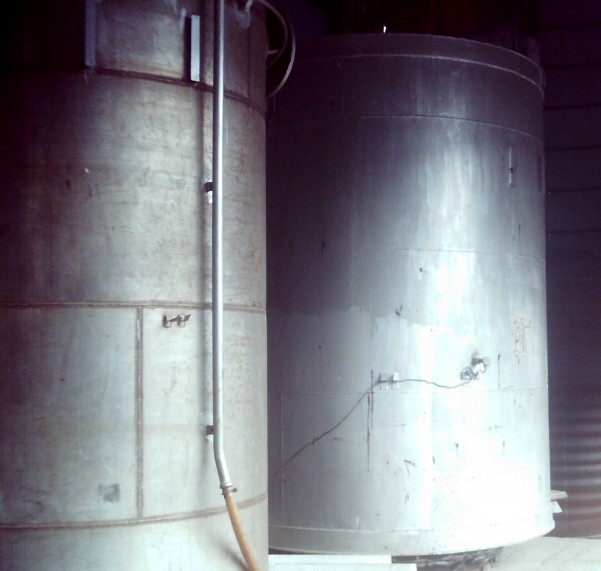
EXPORT PACKAGE
Eye to sky package: Anti-damp paper inside full wrapped with plastic film, iron sheet outside on wooden pallet in 20 feet container with 25mt.
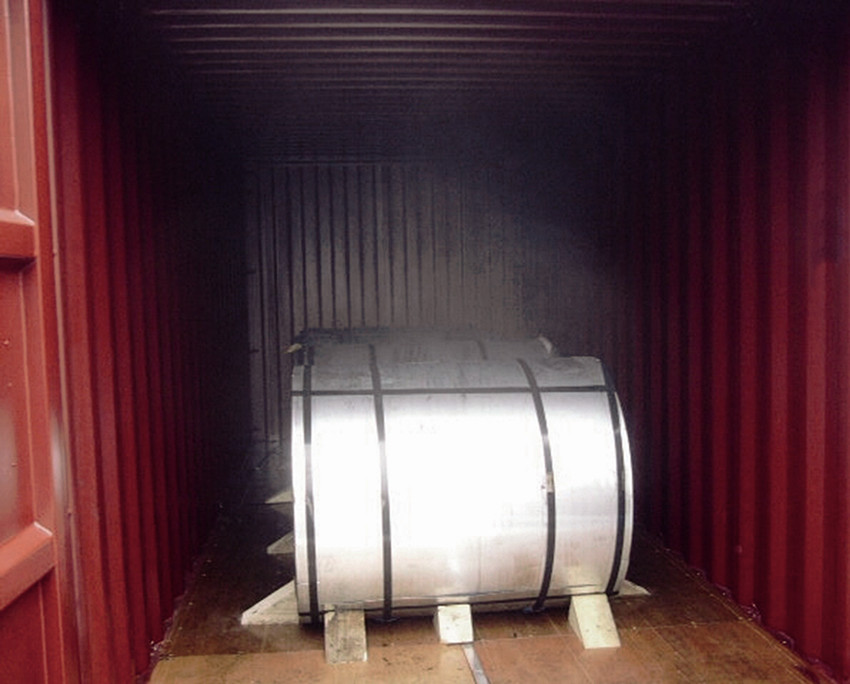
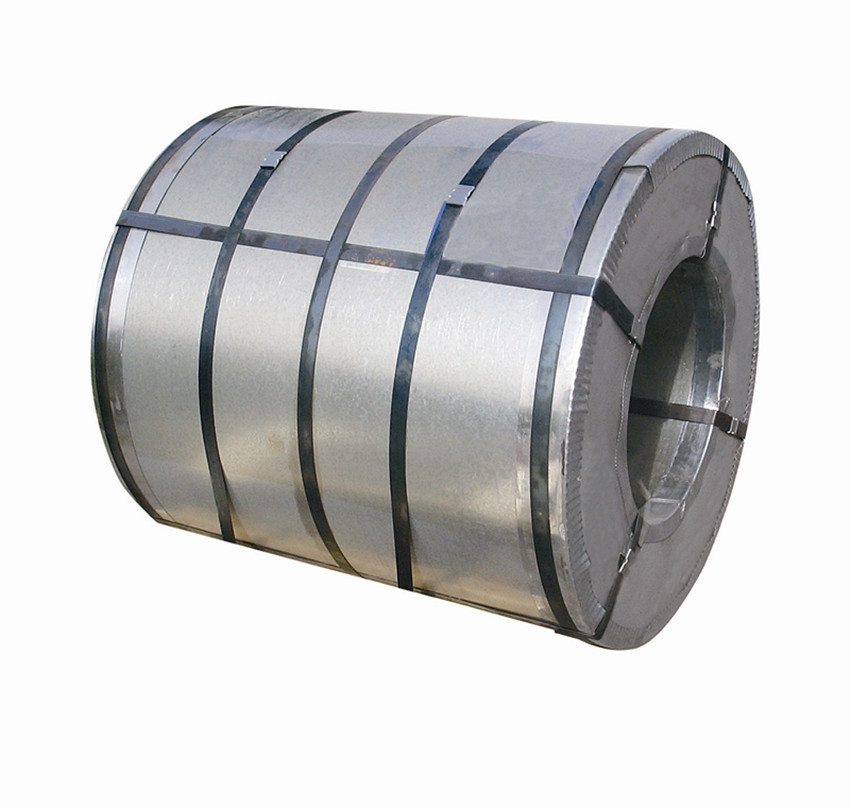
- Q:and which one is better?i'm looking into buying some aftermarket headers, but companies make them in both chrome and stainless steel
- I know nothing of aftermarket headers so can't help you there, but - chrome is a coating on metal. Stainless Steel is a type of metal.
- Q:What are the common methods of storing steel coils in warehouses?
- The common methods of storing steel coils in warehouses include stacking them on pallets or racks, using coil cradles or coil saddles to hold them in place, or utilizing specialized coil storage systems such as coil racks or coil cranes.
- Q:Hi, does anyone know where i can find more about this topic ? fire resistant steels for structural applications. thanks
- Steel okorder /
- Q:I just started playing guitar last year. I never changed the chords. When my sister started taking guitar lessons her teacher said that she needed to change the chords. When i bought the guitar it came with steel strings but i bought nylon strings because they are easier on the fingers. The problem is i already tuned up the guitar but it sounds really bad like if it was not tuned. What can i do about this?
- Both are designed deferentially, they have their own sound and music distinction and so as their string you should use what is appropriate to them.
- Q:What are the different types of steel coil coatings for corrosion resistance?
- There are several types of steel coil coatings available for corrosion resistance, including galvanized coatings, galvannealed coatings, and organic coatings.
- Q:How do steel coil manufacturers contribute to local economies?
- Steel coil manufacturers contribute to local economies in several ways: 1. Job creation: Steel coil manufacturing facilities require a significant workforce to operate, including skilled workers, engineers, technicians, and support staff. By establishing and expanding manufacturing plants, steel coil manufacturers create employment opportunities for local residents. This leads to reduced unemployment rates and increased income levels, which in turn stimulates local spending and economic growth. 2. Supplier networks: Steel coil manufacturers rely on a wide range of suppliers for raw materials, equipment, and services. This creates a network of local businesses that benefit from the demand generated by manufacturing operations. These suppliers include steel producers, logistics companies, packaging providers, maintenance service providers, and many others. The presence of a steel coil manufacturer can stimulate the growth and development of these local businesses, enhancing the overall economic vitality of the region. 3. Secondary industries: The steel coil manufacturing industry acts as a catalyst for the development of secondary industries. These industries include steel fabrication, construction, automotive manufacturing, machinery production, and many others that rely on steel as a primary input. The presence of a steel coil manufacturer in a local economy can attract and support the growth of these industries, leading to increased economic activity and job opportunities. 4. Tax revenue: Steel coil manufacturers contribute to the local economy through the payment of various taxes. These include corporate income taxes, property taxes, sales taxes, and employment taxes. The tax revenue generated by these manufacturers is often significant and can be used by local governments to fund public infrastructure projects, education, healthcare services, and other essential services that benefit the community. 5. Economic multiplier effect: The economic impact of steel coil manufacturers extends beyond their direct operations. The presence of these manufacturers attracts other businesses and industries to the region, leading to a multiplier effect. For example, steel distributors, fabricators, and processors may establish operations nearby to take advantage of the proximity to the manufacturer. This creates a cluster of related industries that further contribute to the local economy, creating a self-sustaining cycle of economic growth and development. In summary, steel coil manufacturers contribute to local economies by creating jobs, supporting local suppliers, stimulating secondary industries, generating tax revenue, and triggering an economic multiplier effect. Their presence enhances the economic vitality of the region, leading to increased employment opportunities, income levels, and overall economic growth.
- Q:How are steel coils inspected for camber?
- To ensure the quality and suitability of steel coils for further processing, various methods are employed to inspect their camber. One commonly used approach is visual inspection, where trained inspectors carefully examine the coils for any visible indications of camber. They search for any deviations from a perfectly straight surface, such as bows or curves, which serve as signs of camber. Another method involves the use of specialized equipment, including straightedges, measuring tapes, and laser devices. Inspectors place the straightedge along the length of the coil to assess any gaps or spaces between the coil and the straightedge. If a significant deviation is detected, it signifies the presence of camber. Measuring tapes are also utilized to measure the distance between the coil and the straightedge at multiple points along its length. This enables inspectors to ascertain the extent of camber and determine if it falls within acceptable tolerance limits. In some cases, laser devices are employed to provide a more precise measurement of camber. These devices emit a laser beam that reflects off the surface of the coil and is subsequently analyzed to determine the presence and magnitude of camber. Furthermore, advanced technologies such as computer vision systems and artificial intelligence algorithms are now being integrated into the inspection process. These technologies have the capability to analyze images or videos of the steel coils and automatically detect any camber, thereby delivering accurate and efficient inspection results. In conclusion, the inspection of steel coils for camber involves a comprehensive approach that combines visual inspection, manual measurements using straightedges and measuring tapes, and the utilization of advanced technologies. This multifaceted approach ensures effective detection and control of camber, thereby upholding the quality and integrity of the steel coils.
- Q:How does stainless steel soap work? I have read the detailed explanation on Wikipedia, but their desciption seems skeptical on the actual chemical process that may take place from using such an item. Is there an actual scientific explanation to how stainless steel soap is able to clean your hands, when it is only a piece of metal?
- Many metals have germicidal qualities. Silver is the strongest germicide of the metals, but a sterling silver bar of soap would be expensive and it would tarnish. The tarnish would actually not affect the silver's ability to kill bacteria, but it would look bad and the tarnish would turn your hands black, so people wouldn't want to use it. Many people even take silver internally in the form of Colloidal Silver, but Colloidal Silver is very controversial. Yes, it kills many bacteria, but it can also cause a person's skin to permanently turn blue...a condition called Argyria. Brass actually is a better germicide than stainless steel...but again this is a cosmetic problem. Brass tarnishes, so people wouldn't want to use it. Stainless steel is actually a very weak germicide, but even steel has some ability to kill germs. Stainless steel also removes fish odor. My son has a stainless steel bar that he takes along when he fishes to remove the fish smell from his hands. There's nothing magical about the bar...a stainless steel spatula would would just as well, but the bar is more convenient to carry. I'm not sure if this is scientific enough or not. -
- Q:How are steel coils inspected for uniformity using statistical analysis?
- Steel coils are inspected for uniformity using statistical analysis by randomly selecting a sample of coils and measuring specific characteristics such as thickness, width, and weight. These measurements are then analyzed using statistical methods, such as mean, standard deviation, and control charts, to determine if the coils meet the desired uniformity criteria. This approach allows for efficient and reliable assessment of the overall quality and consistency of steel coils.
- Q:What are steel coils used for?
- Steel coils are used in a variety of industries for applications such as manufacturing of automobiles, construction materials, appliances, and packaging materials.
1. Manufacturer Overview |
|
|---|---|
| Location | |
| Year Established | |
| Annual Output Value | |
| Main Markets | |
| Company Certifications | |
2. Manufacturer Certificates |
|
|---|---|
| a) Certification Name | |
| Range | |
| Reference | |
| Validity Period | |
3. Manufacturer Capability |
|
|---|---|
| a)Trade Capacity | |
| Nearest Port | |
| Export Percentage | |
| No.of Employees in Trade Department | |
| Language Spoken: | |
| b)Factory Information | |
| Factory Size: | |
| No. of Production Lines | |
| Contract Manufacturing | |
| Product Price Range | |
Send your message to us
Cold Rolled Steel Coil-SPCC 1.50m*1000mm
- Loading Port:
- Shanghai
- Payment Terms:
- TT OR LC
- Min Order Qty:
- 50 m.t.
- Supply Capability:
- 25000 m.t./month
OKorder Service Pledge
OKorder Financial Service
Similar products
New products
Hot products
Related keywords
